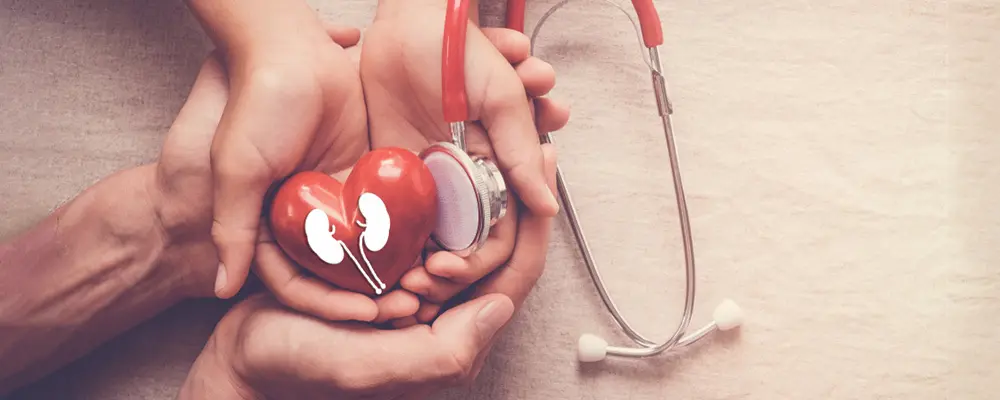Introduction
When discussing major systems of the human body, it is remarkable how interconnected all organs are. The heart and kidneys, two vital organs, work continuously to keep us alive and well. But what happens when one starts to fail? Can heart failure cause kidney failure? This complex dynamic between the heart and kidneys is filled with questions. Understanding the answer is crucial for maintaining overall health and recognizing heart and kidney failure symptoms. Let’s explore the main question, “Can heart failure cause kidney failure?” Through some frequently asked questions.
Can heart failure cause kidney failure?
Yes, heart failure can cause kidney failure. This condition is known as cardiorenal syndrome. When the heart’s ability to pump blood efficiently is compromised, it can reduce blood flow to the kidneys. This reduction in blood flow can lead to kidney damage or worsen existing kidney issues.
How can heart failure cause kidney failure?
Heart failure impacts kidney function primarily through reduced blood flow to the kidneys. When the heart is unable to pump blood efficiently, the kidneys receive less oxygen and nutrients, leading to decreased kidney function. Over time, this may lead to kidney failure. So, can heart failure cause kidney failure? Absolutely, through the reduction of blood flow and nutrient supply to the kidneys.
What are some of the heart and kidney failure symptoms?
Recognizing symptoms early can help in seeking timely medical intervention. Here are some heart and kidney failure symptoms:
- Swelling in the legs, ankles, or feet (edema)
- Fatigue and weakness
- Shortness of breath
- Increased need to urinate, especially at night
- Confusion or difficulty concentrating
- Reduced appetite and nausea
What are the common causes of heart failure leading to kidney failure?
Common causes of heart failure that can lead to kidney failure include:
- Chronic high blood pressure (hypertension)
- Coronary artery disease
- Heart attacks
- Cardiomyopathy (disease of the heart muscle)
- Valvular heart disease
These conditions weaken the heart, making it difficult to pump blood effectively, thus impacting kidney function. So, can heart failure cause kidney failure due to these underlying conditions? Yes, these are significant contributors.
How can patients manage heart failure to protect kidney function?
Managing heart failure to protect kidney function involves:
- Adopting a heart-healthy diet that is low in sodium and saturated fats
- Taking prescribed medications as directed
- Monitoring fluid intake to avoid overloading the heart
- Regularly exercising to improve cardiovascular health
- Avoiding smoking and excessive alcohol consumption
- Attending regular medical check-ups to monitor heart and kidney health
Effective management of heart failure can reduce the risk of developing kidney failure. Can heart failure cause kidney failure if not managed properly? Proper management can greatly reduce the risk.
Are there treatment strategies for heart failure and kidney failure?
Yes, there are various treatment strategies for managing both heart failure and kidney failure. These include:
- Medications to improve heart function and manage symptoms
- Dialysis for advanced kidney failure
- Lifestyle modifications such as dietary changes and regular exercise
Can the treatment strategies improve the chances of heart failure cause kidney failure? Yes, coming up with a comprehensive treatment strategy based on the severity of both conditions with a Cardiologist and/or Nephrologist can really help. Combining these strategies can help manage both conditions effectively.
What role does lifestyle changes play in managing heart and kidney health?
Lifestyle changes play a crucial role in managing heart and kidney health. Adopting a healthy lifestyle can significantly reduce the risk of heart failure and subsequent kidney failure. Key changes include:
- Maintaining a healthy weight and diet
- Engaging in regular physical activity
- Controlling blood pressure and blood sugar levels
- Avoiding smoking
These changes can improve overall health and prevent complications related to heart and kidney diseases. Can heart failure cause kidney failure be mitigated by lifestyle changes? Yes, it can be.
Can early detection of heart failure prevent kidney failure?
Early detection of heart failure can indeed help prevent kidney failure. Regular medical check-ups and monitoring of heart health can identify heart failure in its early stages. Timely intervention and management of heart failure can prevent the progression of kidney damage, reducing the risk of kidney failure. Can heart failure cause kidney failure be avoided with early detection? Early detection of heart and kidney failure symptoms is key to prevention.
What are the potential complications of heart failure and kidney failure?
Potential complications of heart failure and kidney failure include:
- Fluid retention leading to swelling and increased blood pressure
- Electrolyte imbalances affecting heart and muscle function
- Weakened immune function increases the risk of infections
- Progressive damage to other organs such as the liver
- Chronic illness leads to a decreased quality of life
Managing both conditions effectively is crucial to minimizing these complications. Can heart failure cause kidney failure complications to be severe? Yes, they can be if not managed properly.
Are Heart Failure with Kidney Failure Clinical Trials crucial for the development of new treatments?
Yes, Heart Failure with Kidney Failure Clinical Trials are crucial in developing new treatments and improving outcomes for patients suffering from both conditions. These trials explore innovative therapies and management strategies, aiming to enhance the quality of life.
In a Nutshell
This blog addresses the question, “Can heart failure cause kidney failure?” and explores the connection between heart failure and kidney failure. It also provides insights into how heart and kidney failure symptoms can be effectively managed and how to prevent further complications. By recognizing heart and kidney failure symptoms, risk factors, and treatment options, you can take proactive steps to protect your heart and kidneys. Understanding how heart failure can lead to kidney failure is crucial for early detection and maintaining a healthy lifestyle.




